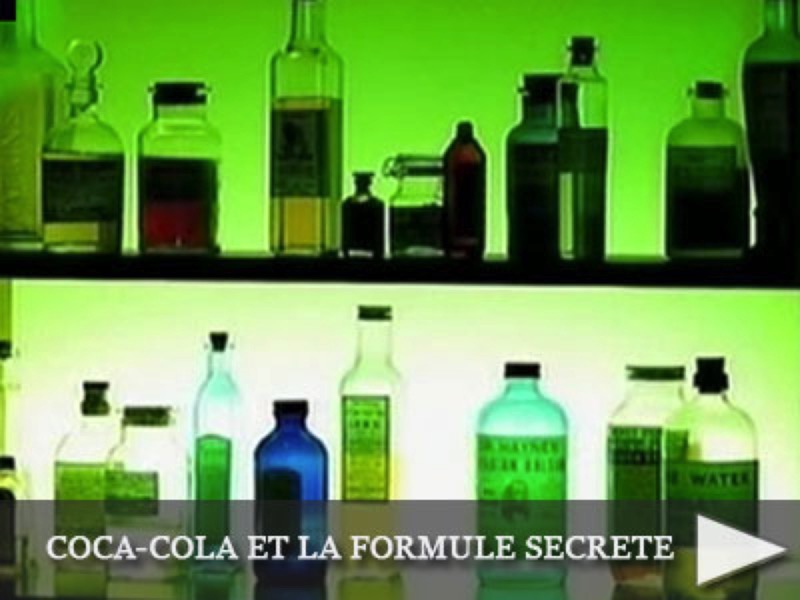Killer Coke News Archive | 2013
Campaign Reports | Newletter Archive
2003 | 2004 | 2005 | 2006 | 2007 | 2008 | 2009 | 2010 | 2011 | 2012 | 2013 | 2014 | 2015 | 2016 | 2017
COCA-COLA KILLS WITH RAY ROGERS, December 27, 2013
Visit SFPI Radio
Corporate power over US workers has tilted drastically toward corporations, resulting in devastation of workers rights, including the right to earn a decent living. This is the main reason for the decline in the living standards of workers and their families and a variety of destructive effects on American society, its economy, the environment and public health.
Americans are realizing the effects of corporate control of government, but outsourcing, deregulation and lack of accountability for harm to individuals and society do not compare to abuses of workers in other nations. Understanding what corporate executives do to their workers in other countries shows why we have to stand with them or suffer the same fate.
Coca-Cola shows the effects of unchecked corporate power...
This video briefly explains the history of aspartame, how this killer drug has been manipulated by donald rumsfeld, to destroy and cause illnesses in the world's population.
Janine Bancroft of CFUV radio the discusses the issues of kidnapping, torture and murder of union leaders in Coca-Cola's Latina American bottling plants. Her in-depth December 19, 2013 interview with Campaign to Stop Killer Coke director Ray Rogers is quite informative.
CFUV is located at the University of Victoria, Victoria, BC, Canada.
"The Dark Side of Coca-Cola's Healthy Brands" By Ocean Robbins, December 5, 2013, Huffington Post
Read Article
"On November 22, Coca-Cola completed its acquisition of Zico Coconut Water. The company now owns a string of beverage brands marketed to people who like natural foods, including not just Zico but also Honest Tea, Odwalla, Simply Orange, and Vitamin Water...
"This means that natural foods consumers might be unknowingly contributing to the profits of, and supporting the policies and practices of, parent companies like Coca-Cola with whom they have profound disagreement...
"For example, the vast majority of natural foods consumers want Genetically Modified Organisms (GMOs) to be labeled. GMO labeling is already mandatory in 64 nations including the entire European Union, and recent polls find it supported by 93 percent of the American public. But profits from the sale of Coca-Cola's healthier brands have been used by Coca-Cola to fight labeling efforts. It stands to reason that the company doesn't want the public to know that its soda pop is sweetened with high fructose corn syrup made from genetically engineered corn..."
"It turns out that sales of Honest Tea, one of the world's fastest growing organic and non-GMO brands, were joined by sales of Zico, Simply Orange, Odwalla, and Powerade, along with Coke itself, in helping to bankroll a secret scheme to keep GMOs from being labeled..."
Join the Coca-Cola brands boycott, and find out how you can get informed and take action, here. CokeBoycott.com
"Big Trouble for Coca-Cola" By Ocean Robbins, Novemeber 21, 2013, Huffington Post
Read Article
"Coca-Cola has been having a rough time....
"In October, campaign finance reports revealed that Coca-Cola had secretly contributed more than a million dollars to the fight against GMO labeling in Washington. It took the state's Attorney General suing Attorney General suing the Grocery Manufacturers' Association (GMA) for what turned out to be an $11 million violation of the state's campaign finance laws to reveal these secret contributions...
"Coca-Cola's CEO, Muhtar Kent, says 'We have... provided a tremendous amount of choice to people.' But when it comes to the right to know if your food was genetically engineered, Coca-Cola would apparently like to keep you in the dark. According to reports, Honest Tea co-founder Seth Goldman said as recently as September that 'after internal discussions,' Coca-Cola wouldn't be 'directly' funding efforts to defeat I-522. Apparently Coca-Cola thought that allegedly illegally laundering money through the Grocery Manufacturers' Association would keep their involvement a secret."
"Coca-Cola's Assault on Tap Water" by Andy Bellatti, Registered dietitian; StrategicDirector of Dietitians For Professional Integrity, Huffington Post, November 21, 2013
Read Article
"While public health advocates have sung the praises of tap water for years, Coca-Cola has been focusing on its own covert assault on the affordable, healthful, and refreshing beverage.
Unbeknownst to many in the nutrition and public health world, the soft drink giant launched a "Cap the Tap" program & aimed at restaurants & in 2010, described in the following manner on the Coke Solutions website :
"Capture Lost Revenue By Turning Off the Tap
" 'Every time your business fills a cup or glass with tap water, it pours potential profits down the drain. The good news: Cap the Tap & a program available through your Coca-Cola representative & changes these dynamics by teaching crew members or wait staff suggestive selling techniques to convert requests for tap water into orders for revenue-generating beverages...'
"It should not come as a surprise that the food and beverage industry will do whatever it can to maximize profits. However, a significant problem arises when this sort of campaign is created by a company that talks about its "commitments" to health and enjoys positive publicity from its partnerships with (or support of) health organizations, including theAcademy of Nutrition and Dietetics, the American Society of Nutrition, and The Obesity Society .
"The world's fattest major country consumes an astounding amount of Coca-Cola products" by Roberto A. Ferdman and Matt Phillips, November 5, 2013, Quartz
Read Article
"Soda is also a big problem. Mexico doesn't merely enjoy an occasional sugary carbonated drink--it downs the stuff like no other country. Mexico is the world's biggest per capita consumer of soft drinks. Mexicans drink more Coca-Cola products, for example, by a huge margin."
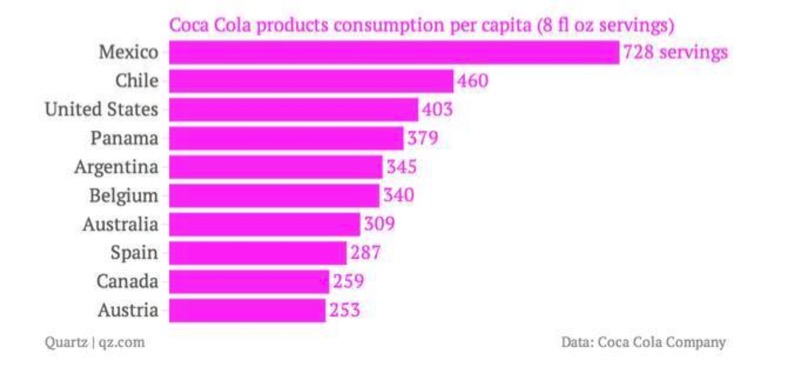
"THIS IS WHAT HAPPENS IN YOUR BODY WHEN YOU DRINK A COKE" by Daily Health Post on October 9, 2013
Read Article
"Have you ever wondered why Coke comes with a smile? Because it gets you high. They removed the cocaine almost 100 years ago. Why? It was redundant...
"60 minutes: The phosphoric acid binds calcium, magnesium, and zinc in your lower intestine, providing a further boost in metabolism. This is compounded by high doses of sugar and artificial sweeteners also increasing the urinary excretion of calcium.
"60 minutes: The caffeine's diuretic properties come into play. (It makes you have to pee.) It is now assured that you'll evacuate the bonded calcium, magnesium, and zinc that was headed to your bones as well as sodium, electrolytes, and water.
"60 minutes: As the rave inside you dies down, you'll start to have a sugar crash. You may become irritable and/or sluggish. You've also now, literally, pissed away all the water that was in the Coke. But not before infusing it with valuable nutrients your body could have used for things like hydrating your system, or building strong bones and teeth."
"ANARCHO FEMINISTS HIJACK COCA-COLA BANNER: NOSTALGICA SIGN STOLEN IN PROTEST OF HUMAN RIGHTS VIOLATIONS" by Daniel Leroy,
The University of Ottawa's fulcrum, Oct 10, 2013
Read Article
"An activist group by the name of Anarcho Féministe Outaouais stole the Coca-Cola banner from Café Nostalgica on Sept. 25 and asked the Graduate Students’ Association (GSAÉD) to sever ties to the company.
"The group explained its motives in a letter sent to the GSAÉD, which runs Café Nostalgica.
“ 'We find it unacceptable that the student union, GSAÉD, accepts to be sponsored by a multinational guilty of serious anti-union practices and human rights violations,' the letter read...
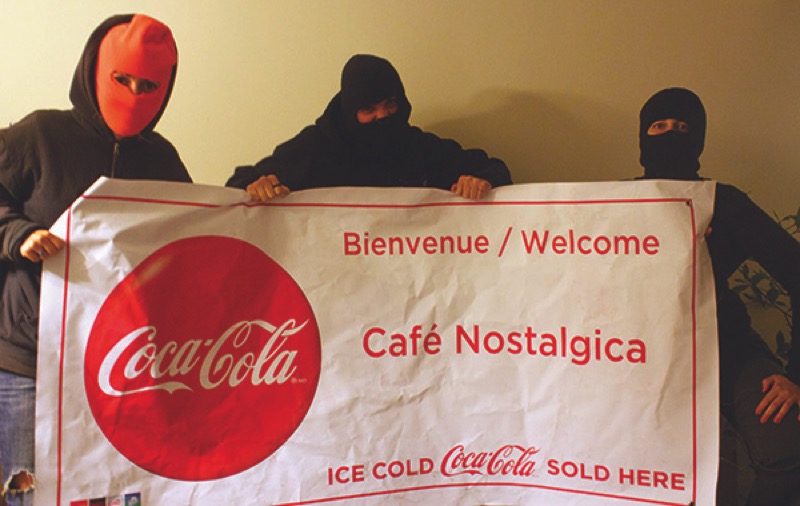
Read letters from Anarcho Feministe Outaouais and GSAED
"GSAÉD explained the history of the Coca-Cola banner and the company’s relationship with the organization. Wolfe said the University of Ottawa administration had 'coerced' the Alumni Association to accept a campus-wide beverage exclusivity contract in 1998."
"Apple passes Coca-Cola as most valuable brand" by Hayley Tsukayama, Washington Post, September 30, 2013
Read Article
"Apple passed Coca-Cola to become the world's most valuable brand, according to a study from the brand consulting firm Interbrand. The survey found that Apple's brand value rose 28 percent in the past year. Coca-Cola, slipped to third place, behind Apple and Google after spending 13 years at the top of the list...
"While acknowledging that Apple has had a bumpy year, Interbrand said that the Cupertino, Calif., company's brand has 'remained steady'..."
"Coca-Cola deliverymen go on strike over alleged outsourcing plan" by Phila Siu, South China Morning Post, 04 October, 2013
Read Article
"Delivery workers at a Coca-Cola factory in Sha Tin went on strike yesterday, accusing their employer of paving the way to contract out their jobs so they could be paid less...
"They feared this was just the first step of the company's plan to contract out all workers, so they decided to go on strike, he said.
"Chan also complained of the employees' long working hours, sometimes up to 15 hours a day.
"Union president Don Chan Hing-lung added that the workload had increased by 50 per cent over the past five years."
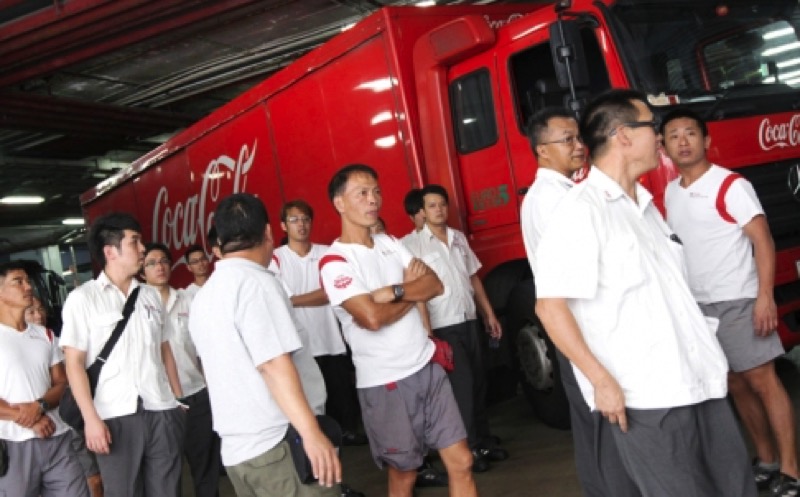
Swire Coca-Cola HK deliverymen stop work over concerns about outsourcing, lower pay and long hours.
Photo: David Wong
"Coca-Cola and Pepsi's thirst for sugar 'helping drive hundreds out of their homes'" - Metro, 2 Oct 2013
Read Article
Coca-Cola and Pepsi are turning a blind eye to poor people 'violently evicted' from their homes to feed the world's sweet tooth, a charity claims.
Some of the biggest names in food and drink are not doing enough to stop poverty-stricken communities in Cambodia and Brazil being forced off their land, Oxfam alleges.
More than 450 families in Cambodia's Sre Ambel district were removed from land seized for a plantation, whose customers include Coca-Cola and Pepsi, according to the charity.
It also accuses the two fizzy drinks companies of ties to suppliers who have uprooted a fishing village and indigenous communities in Brazil.
"Junk foods' stealth attack via game apps" by Michelle Robingson, Stuff.co.nz, Sept. 30, 2013
Read Article
"In the battle for kids' loyalties, food companies are venturing into the world of game apps. McDonald's, Burger King, Coca-Cola and M&Ms are among companies using "advergames" to entice children to their products...
"... You can try to ride a rollercoaster without spilling Coke in the Ahh Coca-Cola game, or test your skills with Burger King's Cut The Rope adventure app."
"AMA not happy about Coca-Cola's health-washing letter to doctors: it won't happen again" by Melissa Sweet, Sept. 15, 2013, Crikey
Read Article
"...the Australian Medical Publishing Company (AMPCo) - a fully owned subsidiary of the AMA - enabled Coca-Cola's most recent health-washing campaign...
"To have AMPCo sending out this letter to doctors was not a good look for the AMA or its public health campaigning (Click on image for larger version).
"But it seems this is now something of a collector's item - that Coca-Cola won't be sending any more letters to health professionals via AMPCo."
"Why Coke is a Joke--New Ad Campaign Defends Aspartame," Top Information Post, Dr. Mercola, August 29,2013
Read Article
"Center for Science in the Public Interest's (CSPI) Executive Director Michael F. Jacobson issued the following statement in response to Coca-Cola's new ad:
" 'Aspartame has been found to cause cancer — leukemia, lymphoma, and other tumors--in laboratory animals, and it shouldn't be in the food supply.
" 'We certainly want Coca-Cola to shift its product mix toward lower- and no-calorie drinks, but aspartame's reputation isn't worth rehabilitating with this propaganda campaign. The company would be better off phasing out its use of aspartame and accelerating its research into safer, natural sweeteners such as those extracted from the stevia plant.' "
"Defending diet soda: Is artificial sweetener safe?" by 10 News Staff
Read Article
"NEW YORK (CBS NEWS) — Diet soda sales are dropping across the country. Last year, diet coke lost three percent. Diet Pepsi saw its numbers fizzle by more than twice that amount.
"Today, the Coca-Cola Company is out with a new ad promoting the benefits of artificial sweeteners in its soft drinks. But Griffin Hospital nutritionist Samantha Heller says people are wrong if they think diet sodas will help them lose weight.
"We don't believe so. If you look at the parallel rise of obesity and the use of artificial sweeteners in this country, it's pretty significant. And the artificial sweeteners appear to alter our neuro-biology in a lot of different ways that may increase our desire to eat more. So, I don't really think that they help with weight loss," she says.
"She recommends cutting back on your diet soda intake and drink seltzer instead, so you can still enjoy the fizz without the calories or the artificial sweeteners."
"Gay Rights Groups Target Coca Cola
"Gay rights groups have poured bottles of Coca Cola down the drain in a protest at Times Square in New York."
Watch on YouTube
"LGBT ACTIVISTS DUMP COCA-COLA IN TIMES SQUARE IN RESPONSE TO SOCHI 2014 SPONSORSHIP" BY JOSEPH EHRMAN-DUPRE, TOWLEROAD
Read Article
"Gay groups charge the beverage giant of sponsoring hate and will dump Coke into the street and will crush Coke cans to protest of the company's continuing silence on Russia's anti-LGBT law and to demand that it immediately withdraw its corporate sponsorship of the Games. Protestors will use the hashtag #DumpCoke on all social media channels.
" 'By sponsoring the 2014 Winter Games in Sochi, Coca-Cola is associating its brands with state-sanctioned gay-bashing,' said Queer Nation co-founder Alan Klein. 'Coca-Cola is sacrificing the safety and security of Russian LGBT people for profit - a position that opposes fundamental Olympic principles, runs counter to the International Olympic Committee charter, and that will tarnish its global image for decades to come.'
"Queer Nation's Klein added, 'Sponsoring the Games gives legitimacy to the host nation and that is exactly what Coca-Cola did when it sponsored the 1936 Games in Nazi Germany. We hope that Coca-Cola does not ignore its own history and does the right thing by refusing to support another regime that targets groups for hatred.' "
"Fat Chance: Diet Coke Fights Obesity?" by Katherine Paul and Ronnie Cummins, Organic Consumers Association, August 28, 2013
Read Article
"... the company that donated $1.7 million to defeat last year's GMO labeling initiative in California has gone from laughable to dangerous. In the wake of declining sales of its Diet Coke brand, Coke has rolled out an ad campaign carefully and deceptively crafted to convince consumers that aspartame, the artificial sweetener (whose patent was at one time owned by Monsanto) in Diet Coke, is a "healthy alternative" to sugar...
"The link between aspartame and increased weight gain is old news. So is the fact that aspartame, far from being a 'healthy alternative' to sugar or anything else, has for years been the focus of studies declaring it unequivocally unhealthy, and suggesting that it has no place in our food supply. Aspartame has been linked to brain cancer and to the accumulation of formaldehyde, known to cause gradual damage to the nervous system, the immune system and to cause irreversible genetic damage at long-term, low-level exposure...
"Coke is 'testing' its new ad campaign in Chicago and Atlanta. Let's tell Coca-Cola's CEO, Muhtar Kent, and other executives at Coke, that we don't appreciate their new ad campaign, and we'd like them to pull it immediately. Ads intended to pass for 'scientific articles' are an insult to our intelligence and a threat to the health of consumers."
"Take Action: Tell Coke to Stop Running Ads Claiming that Diet Coke and Aspartame are Healthy"
Organic Consumers Association, August 28, 2013
Read Article
Please sign this letter (lined). Tell Coke: Stop Running Ads Claiming that Diet Coke and Aspartame are Healthy
"The new campaign, being tested in the Atlanta and Chicago markets, takes the form of full-page advertisements disguised as public service announcements. The message? Aspartame is perfectly safe. It's better for you than sugar. Drinking Diet Coke will help you stay thin and healthy.
"It's not true. Multiple studies, including one published in 2010 by the Yale Journal of Biology and Medicine have concluded just the opposite. Aspartame, they say, actually contributes to weight gain by stimulating your appetite.Other studies have revealed that aspartame increases carbohydrate cravings and stimulates fat storage and weight gain.
"Not only does aspartame lead to weight gain, but it's also far from being a 'healthy alternative' to sugar or anything else. For decades, aspartame has been the focus of studies declaring it unequivocally unhealthy, and suggesting that it has no place in our food supply. Aspartame has been linked to brain cancer and to the accumulation of formaldehyde, known to cause gradual damage to the nervous system, the immune system and to cause irreversible genetic damage at long-term, low-level exposure."
"CUNY to Dump Coca-Cola," Street Hype, July 19, 2013
Download Article
Download Issue
"The Campaign to Stop Killer Coke is reporting that the City University of New York (CUNY) will be completely Coca-Cola-free by August 14, 2013. According to the director of Corporate Campaign, Inc./Campaign to Stop KillerCoke, Ray Rogers this is a major blow to Coca-Cola and a huge victory for the campaign to 'Stop Killer Coke' and its supporters...
"On February 28, 2013, the Corporate Campaign delivered letters to Chancellor Matthew Goldstein and 17 members of the Board of Trustees. In addition, we met with leaders of theUniversity Student Senate.
"On May 20, 2013, seventeen thousand emails were sent out to CUNY faculty, staff and administrators and union leadership and staff. 'The support for our position was very strong among students, faculty, staff and the union,' [Ray] Rogers notes."
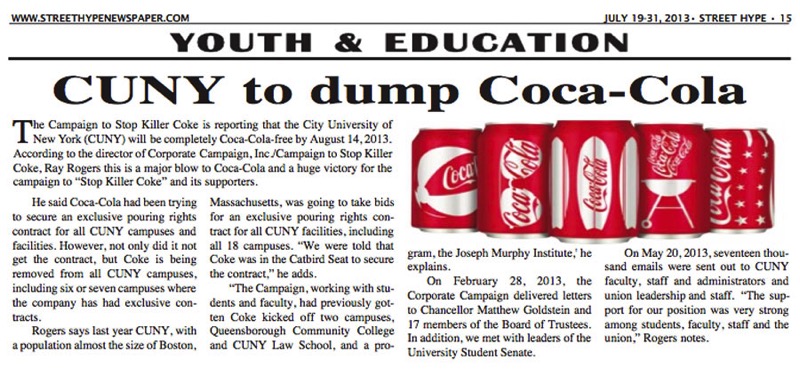
"Pepsi Wins Battle in Cola Wars: $21 Million CUNY Deal" by PATRICK McGEEHAN, The New York Times, August 13, 2013
Read Article
"The City University of New York, no stranger to campus skirmishes, has now taken a stance in the cola wars: 'no Coke, Pepsi.'
"Amid a campaign to persuade university administrators to ban Coca-Cola products, CUNY has given Coke's main rival, Pepsi-Cola, the exclusive right to distribute nonalcoholic beverages on all 24 of its campuses...
"In 2005, New York University banned Coke products from its campus for four years after students protested because of reports of the company's complicity in the murder of union leaders in Colombia.
"Citing that episode and complaints of discrimination by people who worked for the company in New York City, an anti-Coke campaign based in Brooklyn, the Campaign to Stop Killer Coke, pressed CUNY officials to take similar action... [To read more about how we pressured CUNY to reject Coke's bid, go to: StopCokeDiscrimination.org]
"In May, the student senate at Brooklyn College passed a resolution to ban Coke there, said David J. Rosenberg, the president of the student government on that campus.
" 'The real drive behind that resolution was that we don't do business with corporations that have issues with human rights and workers' rights,' Mr. Rosenberg said...
"Mr. [Ray] Rogers said losing out at CUNY would be a blow to Coke because the university was one of the biggest in the country. CUNY has about 270,000 students seeking degrees on campuses of varying sizes, including Hunter College, City College of New York and the College of Staten Island. It has about an equal number of students in continuing education and adult courses, and about 40,000 faculty and staff members & a total audience of more than half a million people...
"Coca-Cola did not respond to requests for comment on Tuesday..."
WBAI Interview with Ray Rogers August 3, 2013 Regarding Banning Coca-Cola from the CUNY Campuses
Coca-Cola, Tax Evasion & the SEC's 'Revolving Door'
July 31, 2013 Killer Coke Newsletter
- Is the SEC Shielding Coca-Cola from the Campaign to Stop Killer Coke?
- Coke's Tax Evasion & Tax Avoidance Hurting the U.S., Mexico, Vietnam & The Philippines
Coke Has a Bloody Past and Present
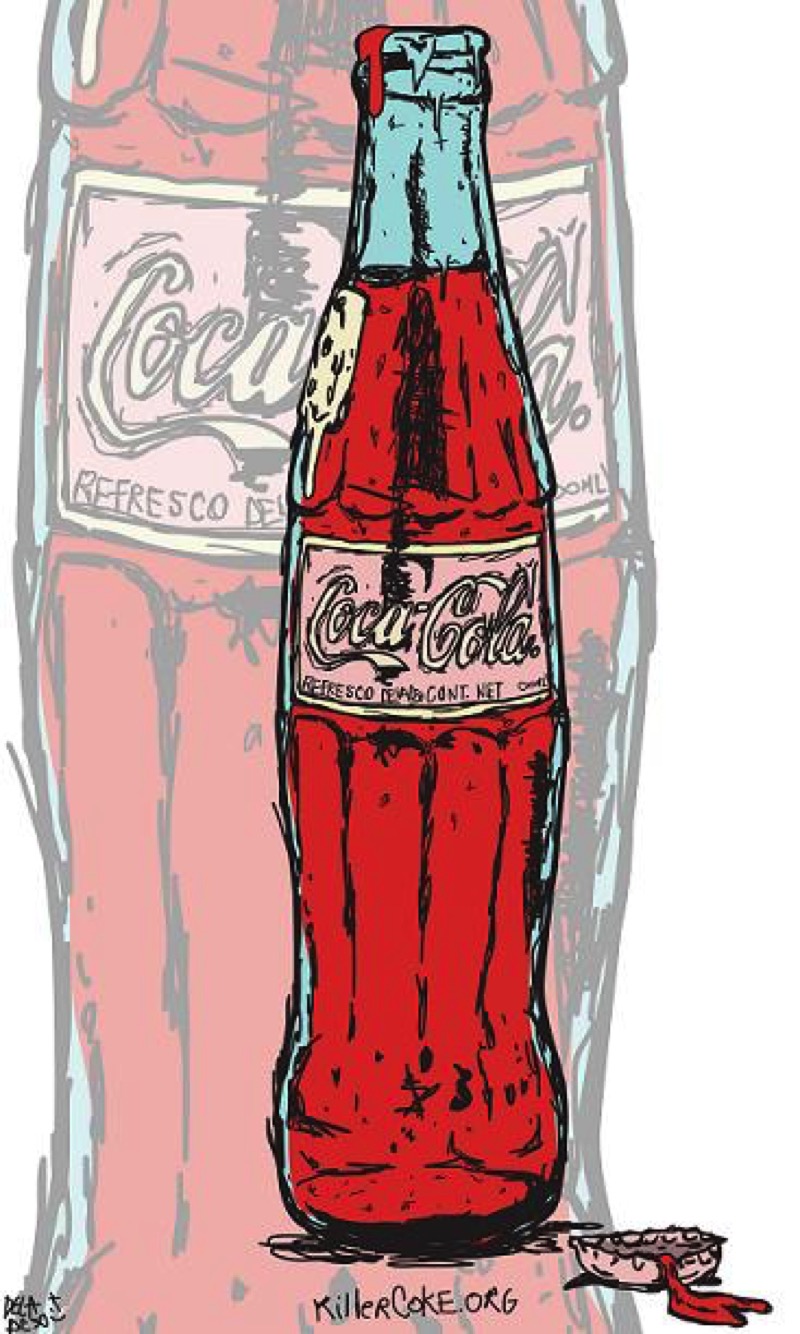
Illustrated by Richie Velazquez, Southern California
"UK Bans Coca-Cola Ad Showing You How To Burn Off Calories From Soda" by Chris Morran, Consumerist, July 22, 2013
Read Article
"Earlier this year, Coca-Cola began running TV ads here and in the UK showing you all the fun activities you could do to burn off the extra calories you consumed while chugging down a Coke. But regulators overseas have since banned one version of the ad saying it misled viewers into thinking they could work off a can of soda with a lot less exertion than is actually required."
"Coca-Cola likely to face class action" from Reuters, July 18, 2013
"A U.S. federal judge has recommended that Coca-Cola Co face a class action lawsuit accusing it of misleading consumers by overstating the health benefits of its Vitaminwater drink...
"The group accused Coca-Cola of deceptively marketing Vitaminwater as an alternative to water and sugared soft drinks that could promote healthy joints, boost the immune system and help people fight eye disease, among other health benefits."
"Is the SEC Shielding Coca-Cola from Whistleblower Ray Rogers? - Press Release, June 25, 2013
Read News Release
"Ray Rogers, Director of Corporate Campaign, Inc./Campaign to Stop Killer Coke, is challenging the U.S. Securities and Exchange Commission (SEC) over the revolving door syndrome between the agency and the corporations it is mandated to oversee. Additionally, Mr. Rogers questions if the SEC is trying to shield The Coca-Cola Company from being exposed and held accountable for worldwide labor, human rights and environmental abuses."
"Another Silly Coca Cola Ad," Diet Doctor, June 14, 2013
Read Article
"What do you do if you're trying to sell the most unhealthy product in the universe?
"You do what Coca Cola is doing. You try to fool your customers. In their new "Calorie Dictionary" ad they're really hoping that nobody stops to think."
Watch on YouTube
"McDonald's and Coke should not sponsor dietitian association, petition says" by Monica Eng, Chicago Tribune, June 17, 2013
Read Article
"Protesting what he sees as a too-cozy relationship between the nation's top dietitian group and big food corporations, Nevada dietitian Andy Bellatti today launched a petition urging the Academy of Nutrition and Dietetics to sever its financial ties with 'junk food companies ...'
" 'For years, the Academy has formed shocking partnerships with the very companies that have contributed to the many health problems faced by millions of Americans,' his petition states. 'Do you think multi-billion dollar junk food companies like Coca-Cola, McDonald's,PepsiCo or Hershey's are reliable sources of information on healthy eating? Probably not, yet they sponsor professional events for & and educate & the people you turn to for credible advice.'"
India: "Chharba panchayat holds rally against Coca-Cola plant"
The rally, which began from Chharba, proceeded to the nearby Dak Pathar and later dispersed after traversing 20 km
By Shishir Prashant, Business Standard, New Delhi/Dehradun, May 29, 2013
Read Article
"Scores of villagers in Chharba today held a rally against the proposed Rs 600-crore Coca-Cola bottling plant, which the government claims will bring prosperity in the region...
"Suresh Bhai of 'Nadi Bachao Andolan' also expressed concern over the plant. 'The people in Uttarakhand are facing acute shortage of water. There is a hue and cry everywhere. In this context, providing drinking water should be the first priority (of the government). This should be done by the government in partnership with village panchayats. Instead of this, the government is providing water and forests to Coke without any good reason,' said Suresh Bhai."
India: "Coca-Cola Expansion Plan Opposed in Mehdiganj, India; Community Seeks Rejection of Coca-Cola's Application," India Resource Center, March 7, 2013
Read Article
"Coca-Cola India's plans to expand its production capacity at its bottling plant in the village of Mehdiganj in the state of Uttar Pradesh have been opposed by local community members and allies...
"Coca-Cola's rainwater harvesting programs in India-which started only after the protests - are lackluster and do not work adequately. Coca-Cola has continually misrepresented the science and logic behind its water conservation projects to make fantastical claims of 'water neutrality', and the company's claims are nothing more than greenwash to deflect attention away from the water crisis it has caused in Mehdiganj and other parts of India...
"One of India's largest NGOs, the Energy and Resources Institute described Coca-Cola's rainwater harvesting structures in 2008 as 'dilapidated' and cast doubt on the company's claims of having achieved 'water neutrality'...
"Even Coca-Cola company officials at the bottling plant in Mehdiganj have admitted failure of their much touted rainwater harvesting initiatives, telling the Central Ground Water Board in 2012 that "its desired impact is not visible in the area."
"Coca-Cola's continued insistence that it replaces the water that it uses-with no actual measurements and with no regard for the localized nature of watersheds-is outlandish. "If Coca-Cola is so confident that it harvests more water than it uses, then why not use rainwater alone to meet all its water needs?" said Nandlal Master of Lok Samiti, a local group that has documented Coca-Cola's dysfunctional water conservation projects in the area and led the campaign against Coca-Cola...
" 'With such a rapidly depleting aquifer, it is better to err on the side of caution. Allowing Coca-Cola to mine for water from deep depths will very likely mean that there is no water for future generations. This goes against the principles of sustainable development. Instead of relying on Coca-Cola's dubious water recharging claims, the right thing to do would be to not allow further excessive groundwater use in the first place. Coca-Cola's expansion must be rejected,' said Amit Srivastava of the India Resource Center."
Vietnam: "Why consumers in Vietnam are calling for a ban on Coke," Campaign Asia-Pacific, By Byravee Iyer, May 28, 2013
Read Article
"A video released earlier this year, part of a boycott campaign against the beverage company, tells the story of a young girl suffering from leukemia. Her health insurance doesn't cover medical expenses, and she cannot afford adequate care because companies like Coca-Cola won't stop evading tax, according to the widely shared video."
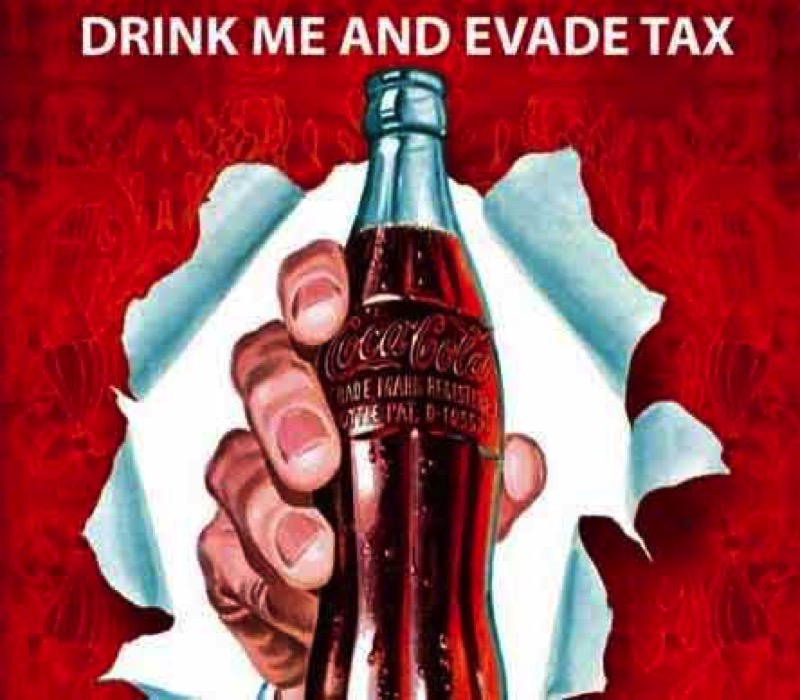
Vietnam: "Vietnamese boycotting Coca-Cola on the suspicion about transfer pricing," Vietnam.net, May 6, 2013
Read Article
The information that Coca-Cola has not paid any dong in tax over the last 10 years of operating in Vietnam has raised a wave of anger among Vietnamese.
" 'I have decided not to drink Coca-Cola any more. I feel I need to do so. We should not accept an investor who enriches in Vietnam, but does not pay tax to Vietnam,' a doctor wrote on his Facebook.
"In fact, Coca-Cola has fallen under suspicion of evading tax for the last many years because it has been continuously declaring loss over the last many years, since the day it began operation in Vietnam...
"It is estimated that the sum of tax evaded by Coca-Cola over the last 10 years may reach trillions of dong, because Coca-Cola is holding the biggest drink market share in Vietnam with very big volumes of products consumed every year. [One trillion dong = $47,652,766]
"Vo Duy Khuong, Vice Mayor of Da Nang City, in an interview given to Tuoi tre newspaper in January 2013, said that he frankly said to Coca-Cola's representative at a meeting that the city's authorities won't let it to expand business in the locality because of the behavior of conducting transfer pricing, that makes the city fail to collect tax from enterprises...
"Meanwhile, local newspapers have found out that Coca-Cola still has not used up the land area of 40,000 square meters allocated to it before, but it still demands more land.
"The refusal by the Da Nang City's authorities has been applauded by the public. People believe that this is a necessary treatment to the investors who only try to make profit for themselves and ignore their duty of paying tax."
"With factory gates locked and operations paralyzed, Coca Cola striking workers brace up for impending dispersal," PAMANTIK - KMU, May 21, 2013
Read Article
"The union filed their notice of strike on March 22, 2013 based on the company's unfair labor practices.
"The filing was followed by their stroke voting, wherein 262 out of 267 union members agreed to go on strike.
" 'The workers who toil every day for Coca Cola to take home billions of profits have been experiencing the worst working conditions under the 99%-Coca-Cola-owned Red System agency. As drivers, forklift operators, and pickers who ensure the safety and orderly release and delivery of finished products, the suffering we have endured has reached its limit.' Added [union President Fernando] Avellino.
"Drivers, who have been in service for 10 to 18 years, are paid on a per-delivery basis, with an average of P4000 for every pay date. Taxes, social service contributions, and the like are automatically deducted from their measly salary. Deliveries, they say, are long and exhausting, consuming 18 hours to and fro the factory. Delivery shortages are likewise deducted.
"Forklift operators and pickers, also in service for more than 10 years, who are in-charge of loading and unloading products for delivery work on a 12-hour shift from 6am to 6pm, receive only 3 hours worth of overtime pay. Lunch breaks are limited, where workers are often pressured to finish their lunch within 30 minutes. They are required to explain for any minute in excess.
"The absence of health and safety standards such as the company's obligation in providing restrooms is also one of the workers' main issues. Company clinics are unable to provide for their medical needs, and ill workers are forced to work and sent a 'notice to explain' once unable to perform and reach their quota...
"Subsequently, the management reduced the number of company trucks used by union members from 121 to 62. Fabricated charges were increasingly filed against union members and officers...
" 'We are all fed up with Coca Cola's greed and cruelty, and we know our strike is the only way to save our dignity. We will defend our ranks no matter what.' Ended Avellino.'
"An Inside View To Coca Cola's Share Holders Meeting" by Tim Franzen, American Friends Service Committee, Occupy Our Homes
Read Article
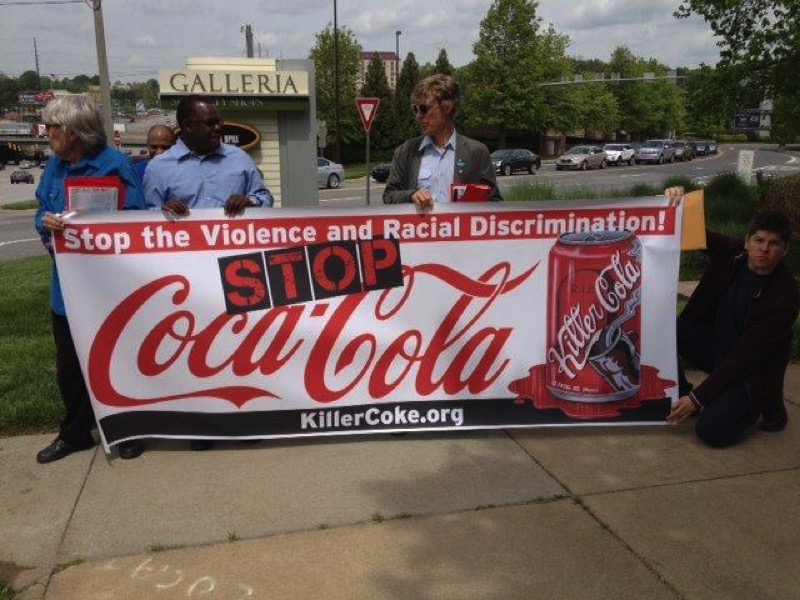
In the photo from left to right are: B. Wardlaw, large Coke shareholder and supporter of Campaign to Stop Killer Coke; former Coke employee Jeffrey Wright; Tim Franzen, Occupy Our Homes, and Ian Hoffmann, Corporate Campaign, Inc.
Ray Rogers challenging Coca-Cola CEO Muhtar Kent about racial discrimination and Cheating Workers in Mexico at the 2013 Annual Shareholders Meeting held April 24th in Atlanta, GA.
B. Wardlaw introducing a resolution he sponsored calling for Coca-Cola to establish a Board Committee on Human Rights. The compan 's Board of Directors opposed the resolution but it garnered more than 3.5% of the votes and thus should appear on next year's agenda as well.
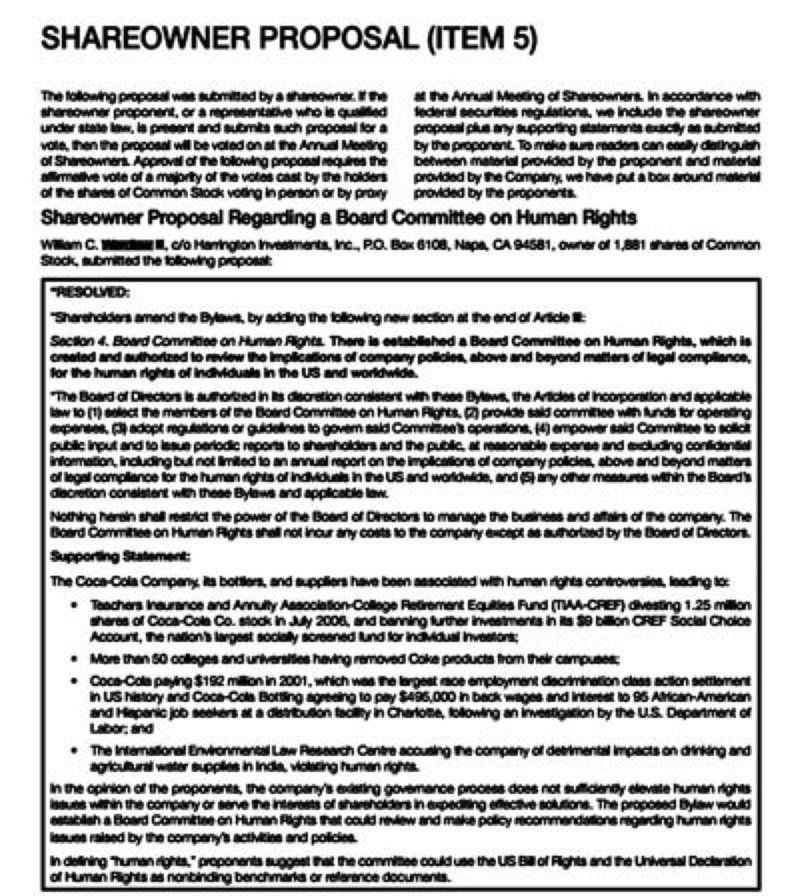
Download the Resolution in .PDF
Rebecca Neubardt, Mt. Holyoke College Student and Corporate Accountability Activist Challenging CEO Muhtar Kent on the bottled water issue.
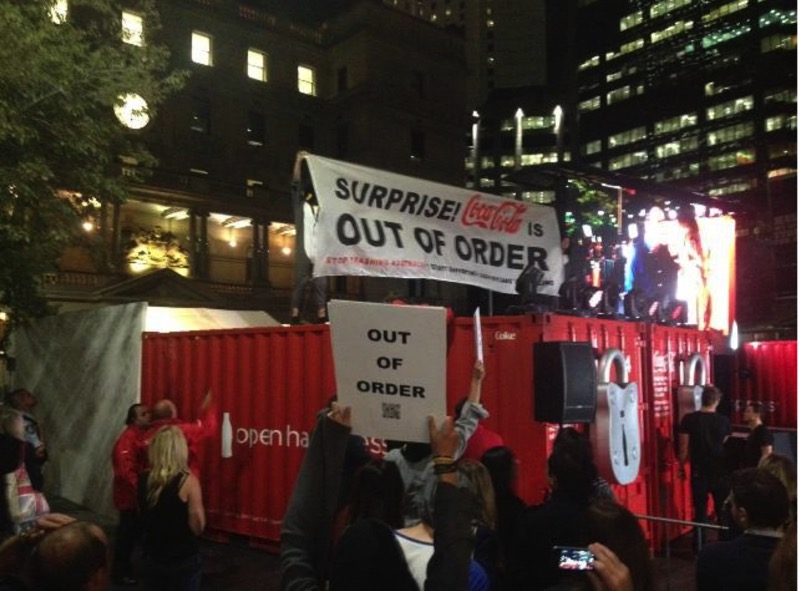
BREAKING: Out Of Order activists hi-jack Coca-Cola's Big Prize Surprise Promotion in Sydney dressed as penguins! This action was organized to address the harm done when Coca-Cola opposed container deposit legislation and sued to stop the legislation.
Video: Stop Coca-Cola trashing Australia & Killing Sea Birds
Watch on YouTube
Video: Coming Together: Translated
Watch on YouTube
When Coca-Cola released "Coming Together," a 2-minute ad addressing obesity, it was met with jeers and howls of laughter. Now that the laughter has died down, Center for Science in the Public Interest (CSPI) thought it would attempt to translate the ad's Cokespeak into plain English.
"CUNY Graduate Victim of Coca-Cola's Discriminatory Employment Practices", by Shirley Irons, Street Hype, April 1-18, 2013
Read Article
"By all accounts Yvette Butler, who worked at Coca-Cola's production plant in New York City, had an exemplary record and did her job very well. She graduated from the College of Technology at the City University of New York (CUNY) and was highly qualified for her job as a production line mechanic. She was the only female African-American mechanic in the plant.For five years,
"Ms. Butler faced racial and gender discrimination, unfair and dangerous work assignments and sexual harassment from supervisors and co-workers..."
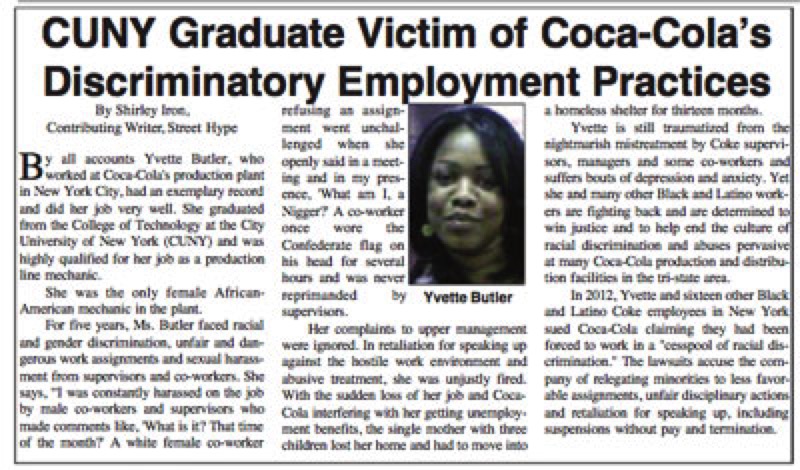
"Coca-Cola Exporting Its Cultural Leadership to Third World" by Carol Pierson Holding, Huffington Post , March 28, 2013
Read Article
"When I was young, I took it as the gospel truth that Coca-Cola could eat the paint off of cars. Then my grammar school classmates reported that baby teeth dissolved in Coke. I learned my lesson: Drink Coke at your own peril.
"I divested my Coca-Cola stock some time ago for social responsibility reasons — Mark Bittman recounts the health dangers in his New York Timesblog — and for financial reasons..."
Ray Rogers Picks Another Battle with Coca-Cola — This Time for Racial Discrimination
15 Minutes of Fact, Jerry Ashton, March 11, 2013, wgrnradio.com
Listen to the Interview
"Unless you are a Union member or a student of Union Activism, the name Ray Rogers may not ring a bell. However, if what he has to say about alleged racial discrimination, human rights and environmental abuses perpetrated by America's Iconic brand, Coca-Cola, you will think of his name every time you hear or see one of their ubiquitous commercials.
"In today's '15 Minutes of Fact,' Ray Rogers will make some very serious allegations of racial discrimination in Coca-Cola bottling plants in the Greater New York City area along with his concerns regarding Coca-Cola's worldwide labor, human rights and environmental abuses.
"Sounds like a tough slog...for both parties..."
"Dietitians for Professional Integrity" By Michael Mudd, The New York Times Sunday Review, March 16, 2013
Read Article
Former Big Food insiders are very valuable sources of information. In 2013, Michael Mudd — former vice president of global affairs for Kraft Foods — penned an op-ed for the New York Times titled "How to Force Ethics on the Food Industry. "
This paragraph particularly stood out to us:
"Next time you hear of a big food or beverage company sponsoring an after-school physical activity program in your community, you can be sure they'll say it's to show "our company's concern for our kids' health." But the real intent is to look angelic while making consumers feel good about the brand and drawing attention away from the unhealthful nature of the company's products. "Posing for holy cards," as one of my colleagues used to put it."
The same can be said of partnering with health organization like the Academy of Nutrition and Dietetics. PepsiCo, Coca-Cola, General Mills, and Kellogg, among others, enjoy a pleasant PR boost from joining hands with a nutrition organization, all in an attempt to distract from unhealthful products and relentless stonewalling of public health policy (usually done via front groups).
Countless public health experts (including the Director-General of the World Health Organization), legislators, nutritionists, dietitians, doctors, journalists, and even former Big Food executives have, for years, consistently shown tangible evidence that these food companies mainly use partnerships as a seemingly-friendly mask. It begs the question: why does AND seemingly not acknowledge such concerns?
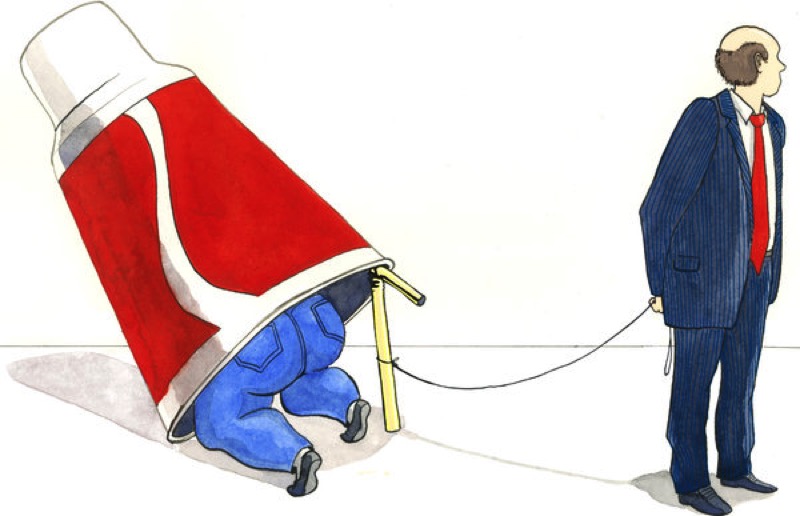
Dare to Speak Up about Racial Discrimination? Coca-Cola: You're Fired!
Before Yvette and Sandra were unjustly terminated from their jobs, they had three strikes against them: they are black; they are women, and they courageously spoke up against the abuses inflicted upon them while on the job in the Coca-Cola bottling plant in New York City.
Queens, New York resident Sandra Walker was suspended, but found innocent of charges that she told a supervisor, "You're a dead man," after witnesses proved she told the supervisor, You're a racist." Yet Sandra was never reimbursed for five weeks lost pay. "I complained about recurring abuses. This led to me being interrogated by persons from Coke's Human Resources Dept. in Atlanta. I was asked such irrational questions as, 'Sandra, do you have any personal friends who are HIV Positive?' Then I was terminated."
Brooklyn, New York residentYvette Butler , in retaliation for speaking up, was unjustly fired from her job. "As a result, I lost my home and with three children had to move into a city homeless shelter for 13 months. I endured offensive racial comments and harassment on the job, as well as unfair and dangerous work assignments." Yvette still suffers from depression and anxiety from the mistreatment at the hands of supervisors, managers and co-workers.
Read more about Yvette's and Sandra's cases and that of other victims of Coke's abuses. Try to understand the pain of being a victim of racial discrimination and the unfair treatment, nightmares, panic attacks, constant stress and emotional turmoil.
See StopCokeDiscrimination.org Newsletter 130228


Yvette Butler and Sandra Walker
"D.C. Soda Ban: New York City-Style Sugary-Drinks Restrictions Coming To The Nation's Capital?" by Will Wrigley, The Huffington Post, March 2, 2013
Read Article
"If a few candidates for the D.C. Council have their way, you'll have to run across the border into Maryland or across the river into Virginia to quench your giant soft drink thirst, according to a report by Washington City Paper.
"At a Democratic debate for the at-large council seat Thursday evening, four of the seven candidates hoping to represent the city said they would support enacting a ban on large sodas, similar to the ban enacted by New York City Mayor Michael Bloomberg last year."
"Vermont House panel advances soda tax" by DAVE GRAM, Associated Press, February 21, 2013
Read Article
"A Vermont House committee voted Wednesday to advance legislation calling for a penny-an-ounce tax on sugar-sweetened beverages.
"The House Health Care Committee voted 7-2, with two members absent, for the tax bill that would raise an estimated $27 million to support state health programs. Supporters say it will also discourage consumption of products that are big contributors to obesity.
" 'We have an obesity epidemic and the scientific data is clear that sugar-sweetened beverages have a unique place in contributing to this epidemic,' said Rep. George Till, D-Jericho, a doctor and member of the Health Care Committee."
"Salt Sugar Fat: NY Times Reporter Michael Moss on How the Food Giants Hooked America on Junk Food," Democracy Now, March 1, 2013
(Michael Moss discusses Coca-Cola at about 43 minutes into the video.)
Read Article
Food companies have known for decades that salt, sugar and fat are not good for us in the quantities Americans consume them. But every year, people are swayed to ingest about twice the recommended amount of salt and fat -- and an estimated 70 pounds of sugar. We speak with New York Times reporter Michael Moss about how in his new book, "Salt Sugar Fat: How the Food Giants Hooked Us." In a multi-year investigation, Moss explores deep inside the laboratories where food scientists calculate the "bliss point" of sugary drinks or the "mouth feel" of fat, and use advanced technology to make it irresistible and addictive. As a result of this $1 trillion-a-year industry, one-in-three adults, and one-in-five children, are now clinically obese.
Soda: Is The Fizz Killing Us? - Facts & Infographic
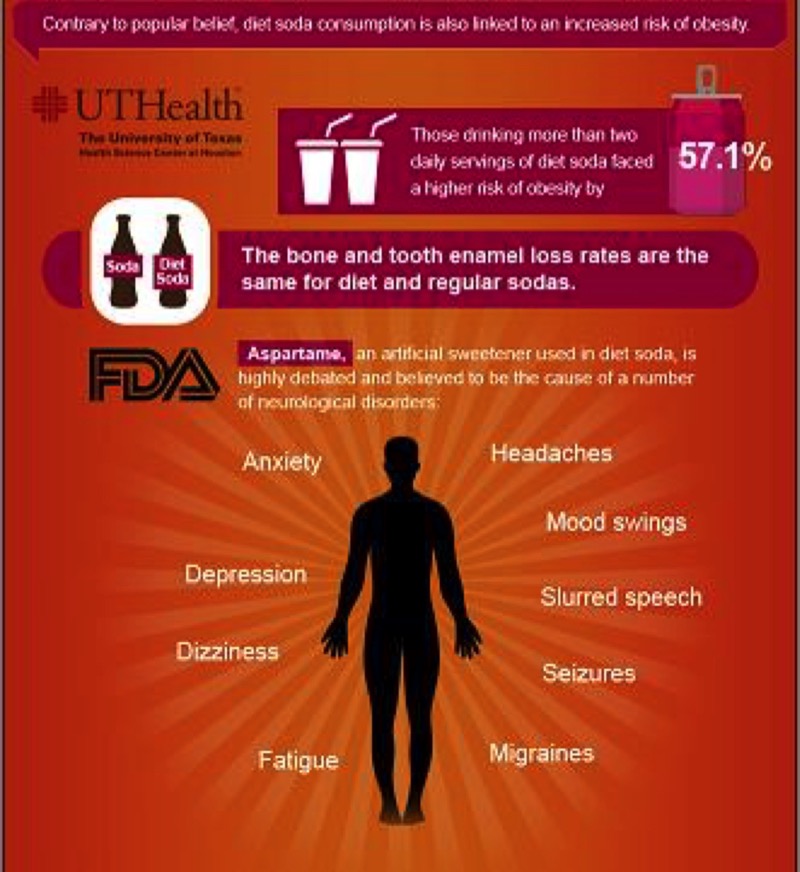
"Aspartame Pathway" by Dr. Mercola, February 29, 2013
Read Article
"... research suggests this artificial sweetener (aspartame) may be implicated in health risks ranging from cancer to seizures and even death."
"The Extraordinary Science of Addictive Junk Food" by MICHAEL MOSS, February 20, 2013, NY Times Magazine
Read Article
IV. 'These People Need a Lot of Things, but They Don't Need a Coke.'
The growing attention Americans are paying to what they put into their mouths has touched off a new scramble by the processed-food companies to address health concerns. Pressed by the Obama administration and consumers, Kraft, Nestle, Pepsi, Campbell and General Mills, among others, have begun to trim the loads of salt, sugar and fat in many products. And with consumer advocates pushing for more government intervention, Coca-Cola made headlines in January by releasing ads that promoted its bottled water and low-calorie drinks as a way to counter obesity. Predictably, the ads drew a new volley of scorn from critics who pointed to the company's continuing drive to sell sugary Coke.
One of the other executives I spoke with at length was Jeffrey Dunn, who, in 2001, at age 44, was directing more than half of Coca-Cola's $20 billion in annual sales as president and chief operating officer in both North and South America. In an effort to control as much market share as possible, Coke extended its aggressive marketing to especially poor or vulnerable areas of the U.S., like New Orleans — where people were drinking twice as much Coke as the national average — or Rome, Ga., where the per capita intake was nearly three Cokes a day. In Coke's headquarters in Atlanta, the biggest consumers were referred to as "heavy users." "The other model we use was called 'drinks and drinkers,' " Dunn said. "How many drinkers do I have? And how many drinks do they drink? If you lost one of those heavy users, if somebody just decided to stop drinking Coke, how many drinkers would you have to get, at low velocity, to make up for that heavy user? The answer is a lot. It's more efficient to get my existing users to drink more."
One of Dunn's lieutenants, Todd Putman, who worked at Coca-Cola from 1997 to 2001, said the goal became much larger than merely beating the rival brands; Coca-Cola strove to outsell every other thing people drank, including milk and water. The marketing division's efforts boiled down to one question, Putman said: "How can we drive more ounces into more bodies more often?" (In response to Putman's remarks, Coke said its goals have changed and that it now focuses on providing consumers with more low- or no-calorie products.)
In his capacity, Dunn was making frequent trips to Brazil, where the company had recently begun a push to increase consumption of Coke among the many Brazilians living in favelas. The company's strategy was to repackage Coke into smaller, more affordable 6.7-ounce bottles, just 20 cents each. Coke was not alone in seeing Brazil as a potential boon; Nestle began deploying battalions of women to travel poor neighborhoods, hawking American-style processed foods door to door. But Coke was Dunn's concern, and on one trip, as he walked through one of the impoverished areas, he had an epiphany. "A voice in my head says, 'These people need a lot of things, but they don't need a Coke.' I almost threw up."
Dunn returned to Atlanta, determined to make some changes. He didn't want to abandon the soda business, but he did want to try to steer the company into a more healthful mode, and one of the things he pushed for was to stop marketing Coke in public schools. The independent companies that bottled Coke viewed his plans as reactionary. A director of one bottler wrote a letter to Coke's chief executive and board asking for Dunn's head. "He said what I had done was the worst thing he had seen in 50 years in the business," Dunn said. "Just to placate these crazy leftist school districts who were trying to keep people from having their Coke. He said I was an embarrassment to the company, and I should be fired." In February 2004, he was.
Dunn told me that talking about Coke's business today was by no means easy and, because he continues to work in the food business, not without risk. "You really don't want them mad at you," he said. "And I don't mean that, like, I'm going to end up at the bottom of the bay. But they don't have a sense of humor when it comes to this stuff. They're a very, very aggressive company."
When I met with Dunn, he told me not just about his years at Coke but also about his new marketing venture. In April 2010, he met with three executives from Madison Dearborn Partners, a private-equity firm based in Chicago with a wide-ranging portfolio of investments. They recently hired Dunn to run one of their newest acquisitions — a food producer in the San Joaquin Valley. As they sat in the hotel's meeting room, the men listened to Dunn's marketing pitch. He talked about giving the product a personality that was bold and irreverent, conveying the idea that this was the ultimate snack food. He went into detail on how he would target a special segment of the 146 million Americans who are regular snackers — mothers, children, young professionals — people, he said, who "keep their snacking ritual fresh by trying a new food product when it catches their attention."
He explained how he would deploy strategic storytelling in the ad campaign for this snack, using a key phrase that had been developed with much calculation: "Eat 'Em Like Junk Food."
After 45 minutes, Dunn clicked off the last slide and thanked the men for coming. Madison's portfolio contained the largest Burger King franchise in the world, the Ruth's Chris Steak House chain and a processed-food maker called AdvancePierre whose lineup includes the Jamwich, a peanut-butter-and-jelly contrivance that comes frozen, crustless and embedded with four kinds of sugars.
The snack that Dunn was proposing to sell: carrots. Plain, fresh carrots. No added sugar. No creamy sauce or dips. No salt. Just baby carrots, washed, bagged, then sold into the deadly dull produce aisle.
"We act like a snack, not a vegetable," he told the investors. "We exploit the rules of junk food to fuel the baby-carrot conversation. We are pro-junk-food behavior but anti-junk-food establishment."
The investors were thinking only about sales. They had already bought one of the two biggest farm producers of baby carrots in the country, and they'd hired Dunn to run the whole operation. Now, after his pitch, they were relieved. Dunn had figured out that using the industry's own marketing ploys would work better than anything else. He drew from the bag of tricks that he mastered in his 20 years at Coca-Cola, where he learned one of the most critical rules in processed food: The selling of food matters as much as the food itself.
Later, describing his new line of work, Dunn told me he was doing penance for his Coca-Cola years. "I'm paying my karmic debt," he said.
This article is adapted from "Salt Sugar Fat: How the Food Giants Hooked Us ," which will be published by Random House this month.
Michael Moss is an investigative reporter for The Times. He won a Pulitzer Prize in 2010 for his reporting on the meat industry.
"Stop Coca-Cola trashing Australia: 3 things you can do" | Greenpeace Australia Pacific
Read Article
"Why? Because the company's lawyers are taking the Northern Territory Government to court for introducing a proven and popular 'Cash for Containers' recycling scheme (also known as the Container Deposit Scheme). No, you didn't misread it: Coca-Cola is taking the NT Government to court for trying to improve its recycling system.
"Together we can build the pressure on Coca-Cola Australia and stop the company from trashing Australia..."
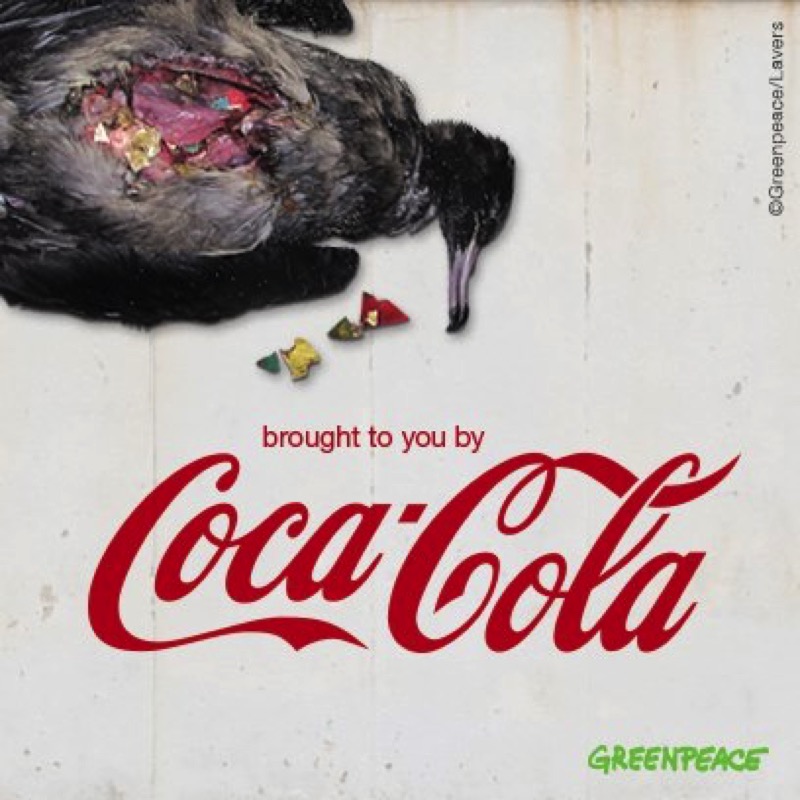
Mission: To convince Australian state and national governments to adopt a modern, efficient national container deposit system, to stop billions of beverage containers from going to landfill and litter each year.
Company Overview: The Boomerang Alliance represents 23 national and state-based environment groups and local government organizations across Australia, concerned about packaging and waste.
"Coroner Links Mom's Death to Coke 'Addiction'" by Katie Moisse, ABC New,| Feb. 13, 2013
Read Article
"A New Zealand coroner has linked the death of a 31-year-old woman to her Coca-Cola addiction.
"Natasha Harris died Feb. 25, 2010 from a cardiac arrhythmia, according to a 19-page coroner's report obtained by ABCNews.com. And while Harris, a mother of eight from Invercargill, New Zealand, was known to smoke heavily and skip multiple meals, coroner David Crerar concluded that the sugar and caffeine she got by drinking more than 2.6 gallons of Coca-Cola Classic per day was 'a substantial factor" in her death.' "
"Study: Diet Soda Increases the Risk of Diabetes. Why Do We Still Drink This Stuff?" by Lylah M. Alphonse, Senior Editor, Yahoo! Shine, February 8, 2013
Read Article
"Yet another study confirms what people have been saying for ages: Stop drinking diet soda. Like, right now. Drinking just one 12-ounce can of an artificially sweetened fizzy drink per week can increase your risk of Type 2 diabetes by 33 percent, French researchers found. And given that most people don't stop at a single weekly serving, your real risk for diabetes could actually be much higher."

Coca Cola versus France Télévisions
By James Creedon, MediaWatch, Jan. 31, 2013
Coca Cola is allegedly threatening to stop all advertising deals with France 2 over a documentary the state broadcaster ran earlier this month (January 2013)
Read Article
Although France 2 receives more than 2.3 million Euros ( more than $3.1 million) in advertising from Coke, they still had the courage to run this film, "Coca-Cola Et La Formule Secrete (Coca-Cola and the Secret Formula), that is critical of the beverage company on a number of fronts.
Some of the film was shot at the Campaign to Stop Killer Coke headquarters and highlights some of the issues on which we have been working.
Following is the film in French. We will soon post the film with English translation.
"Coca-Cola Sued Over Sugar-Laden vitaminwater" By Dale Wannen | January 25th, 2013, TriplePundit.com
Read Article
"...After all, using the word "vitamin" in front of the name [Vitamin Water] surely implies that there is some nutritional or healthy value. It must be good for you, right? Wrong! These drinks hold about as much nutrition as that piece of lint in your pocket.
"In retaliation for this misinformation, the non-profit Center for Science in the Public Interest, is suing Coca-Cola (Coke bought Vitamin Water for over $4 billion in 2007) on the grounds that vitaminwater labels and advertising are filled with "deceptive and unsubstantiated health claims." vitaminwater contains about 33 grams of sugar, while Two Hostess Ding Dong cake snacks have about 36 grams of sugar. Instead of taking the silent plea here Coke attorneys are defending the lawsuit by stating that 'no consumer could reasonably be misled into thinking vitamin water was a healthy beverage.' What!?"
"NAACP Hispanic Federation Fronting for Coca-Cola and Liquid Candy," Corporate Crime Reporter, January 23, 2013
Read Article
"It doesn't take a genius to figure out why the NAACP and the Hispanic Federation came out in opposition Mayor Michael Bloomberg's ban on giant sodas and against the public health interests of their own communities...
"What wasn't mentioned in the AP report is the close ties between the NAACP and Hispanic Federation and the liquid candy industry.
"Coca-Cola is a major donor to the NAACP and their branches...
"...overweight and obesity have become commonplace throughout America, mirroring the growth of soda serving sizes over the past five decades. More than two-thirds of adults and one in three children are overweight or obese in this country...
"The Center's executive director, Michael Jacobson, told Corporate Crime Reporter that 'it is sad that disease-promoting companies can influence civic groups by giving them donations.'"
"Coke Blinks" By MARK BITTMAN, New York Times, January 22, 2013
Read Article
" ...It's hurting from decreased domestic sales and smarting from the piles of evidence that soda and other sugar-sweetened beverages are not only our biggest source of calories, but also among our most harmful. So it has struck back with a two-minute video whose ostensible message is that too many calories will make you fat (true), that those in Coke are no worse than any others (false), and that we're all in this together (ridiculous)...
"There is virtual consensus that drinking too much soda is bad for you, and it's not hard to understand the evidence. I asked Rob Lustig, a pediatric endocrinologist at the University of California, San Francisco, and the author of 'Fat Chance: Beating the Odds Against Sugar, Processed Food, Obesity, and Disease,' if he'd sum it up for me. His response: 'A calorie is NOT a calorie. Different calories have different metabolic fates in the body. Those from fructose overwhelm the liver, forcing the pancreas to make more insulin and driving more energy into fat cells. And soda is nothing but a fructose delivery system.' "
"Soda is a fructose delivery system as tobacco is a nicotine delivery system. (And if it's not 'truly' addictive but only habit forming, so much the better; it'll be that much easier to get people to cut back.) That's why added sugar, especially in liquid form, is rapidly becoming the focus of savvy public health officials, scientists, physicians, journalists, parents and even politicians. And the ridiculous notion that government has no role in public health - the blind 'nanny-statism' argument, which ignores everything from seat belts to tobacco to guns - is being overwhelmed by the tide of evidence, as demonstrated by a recent poll by The New England Journal of Medicine, in which 68 percent of nearly 1,300 respondents worldwide 'favored government regulation of sugar-sweetened beverages.' "
"Coca-Cola Makes You Thin?" By Derek Beres, Huffington Post, January 22, 2013
Read Article
"You would think that half a century would be enough time for a company that brands itself as a nutritional innovator to keep up with the science, but in its new anti- commercial, "Coming Together," Coke continues avoiding the real issues of obesity ...
"There's a way to make the mayor's [NYC Mayor Bloomberg] lead even more effective: Stop purchasing products created by Coca-Cola until the company can be honest about what modern nutritional science is telling us. And yes, that includes putting down the Dasani and installing a filter onto your faucet."
"Say It Ain't So — A Can of Soda a Day Can Increase the Risk of Cancer for Men by 40 Percent?
"A new medical study poses huge questions for the future of soft drinks."
January 18, 2013
Read Article
"The important take away from our study is that habitual consumption of soft drinks may be linked to an increased risk of pancreatic cancer," Noel Mueller, University of Minnesota School of Public Health Ph.D. student and first author on Pereira's study, told AlterNet. "In response to any criticisms, I'd like to point out that our results align with a recent Columbia University Mailman School of Public Health meta-analysis of studies on this topic, including ours, which found that soft drink consumption was indeed positively associated with pancreatic cancer risk."
"Coca-Cola's sugar problem," The Guardian, word of mouth blog, Jan 18, 2013
Read Article
This week the Coca-Cola Company confessed it — possibly — has a problem with sugar, as the first stage of being 'part of the conversation' about . OK, Coke, this is what we've been talking about.
"Coca-Cola Touts Role in Fighting Obesity — and Lobbies for Giant Sodas" By Matt Brownell, AOL Daily Finance, January 15, 2013
Read Article
"At the same time Coca-Cola is boasting about its smaller cans and diet offerings, it's fighting tooth-and-nail for the right to sell drinks in giant, calorie-packed servings."
"Coca-Cola Pulls Ads From French Public Television Over Controversial Documentary
"Coca Cola is allegedly threatening to stop all advertising deals with France 2 over a documentary the state broadcaster ran earlier this month (January 2013)
Grub Street New York, Jan. 31, 2013
Read Article
"The beverage corporation has allegedly pulled all of its advertising from the state-owned France Televisions following a controversial documentary that aired on France 2, according to reports. Coca-Cola et la formule secrete apparently rubbed executives the wrong way, because its 'troublemaker' host posed questions about the safety of the soda directly to the company's chief executive in front of shareholders."
Although France 2 receives more than 2.3 million Euros ( more than $3.1 million) in advertising from Coke, they still had the courage to run this film, "Coca-Cola Et La Formule Secrete (Coca-Cola and the Secret Formula), that is critical of the beverage company on a number of fronts.
Some of the film was shot at the Campaign to Stop Killer Coke headquarters and highlights some of the issues on which we have been working.
"The Coca-Cola Company: Corporate Rap Sheet" by Phil Mattera, Corporate Research Project
Read Article
Coca-Cola is one of the best known product names in the world, and the Coca-Cola Company has long been the leader of the international soft drink industry. Once preoccupied with its perennial market-share battle with PepsiCo, the company has had to cope with declining consumption of carbonated beverages, prompting it to branch out into juices, sports drinks and bottled water. While it has long cultivated a benign image, Coca-Cola has also been confronted with international pressure campaigns on issues ranging from labor practices in Colombia to water use in India. In the United States, the company has faced charges of racial discrimination, accusations that its marketing efforts contributed to the national problem and criticism over the environmental impact of its move into the bottled water business.
